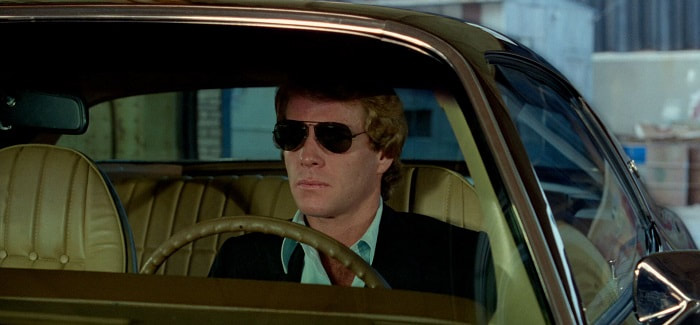|
When Walter Hill made The Driver, he felt that the time was right for its spare, minimalist approach - for something "more than, or perhaps less than, an action film." In fact, it arrived too soon. It was savaged by critics and proved a financial failure. Had Hill's next project not already entered production, The Driver might have prematurely ended his career. Like that next project - The Warriors (1979) - The Driver has become a cult favourite. What critic Kevin Thomas of the Los Angeles Times saw as a "bad imitation" of European and American noir is now recognised as an inspired extension of those movies. Far from being "ultraviolent trash", its superb car chases are electrifying even for the '70s, the golden era of the form. The Driver is uniquely effective because it is built around Hill's response to what he saw as the "vastly oversentimental" approach of conventional Hollywood screenwriting. His script is terse, minimalist, built for speed. Characters have only titles in place of names, and The Driver (Ryan O'Neal) speaks fewer than 350 words in total. The story, too, is thrillingly free of sentiment and complication. The Driver and his rival The Detective (Bruce Dern) have no high-minded ideals. They aren't motivated by heroism, or duty, or honour: only by ego, the will to win, and a lonely kind of obsession. Theirs is a cold, hard world. Like Sergio Leone's antiheroes, these men seem to come from nowhere, and to need nothing. Hill revels in this pared-down moral universe, now a hallmark of his career, and makes from it a film which has been influential but still feels unique. As The Driver ends, little is resolved. Just as the struggle between The Driver and The Detective is apparently unending, so too is the appetite for the visceral conflict of action films, sustained from one era to the next. Few writer-directors have done as much to satisfy this demand as Walter Hill - and with The Driver he proved that sometimes, "something less" is "something more".
0 Comments
Your comment will be posted after it is approved.
Leave a Reply. |
About
Exploring classic science fiction, with a focus on the 1950s to the 1990s. Also contributing to Entertainium, where I regularly review new games. Categories
All
|

